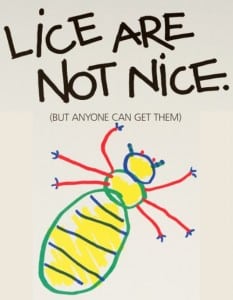School Health Services
Head LiceOverview
Based on the recommendations of the American Academy of Pediatrics, the Centers for Disease Control, and the National Association of School Nurses, children found to have head lice do not need to be sent home early from school. They can finish the school day, be treated, and return to school after appropriate treatment has begun. Head lice can be a nuisance and are common in childhood. They do not spread disease, and in-school transmission is rare. Management of head lice should not disrupt the educational process. The burden of unnecessary absences to students, families, and communities and the consequences suffered from negative social stigma far outweigh the nuisance associated with head lice. The following are guidelines for managing head lice in the school setting:
- Teachers and/or parents may request that a student be checked for lice, based on excessive head-scratching, student report of a “crawling” feeling, or observation of suspected lice and/or eggs.
- The student will be screened by the health assistant or school nurse in a private location.
- Students with live lice will be allowed to remain in the classroom until the end of the day but should be discouraged from close head-to-head contact with other students.
- In rare situations, a student may be sent home. Sending a student home is determined on an individual basis and in consultation with the school nurse. Common sense should prevail when making a plan to send a child home (a child with a heavy infestation vs. a child with a couple of live lice).
- Parent/guardian should be informed of the findings by phone. Information on head lice and treatment will be provided to the parent/guardian. It is expected that parent/guardian will treat the child before sending them back to school.
- The student may return to school the next day after treatment. The nurse or health assistant will determine if a student has been treated based on parent/guardian report and visual inspection.
- Confidentiality will be maintained. Names of children will not be shared with other students or parents (note: children do tend to share this information with other children).
- The school nurse will assist in follow-up of children with recurrent head lice cases by providing education and support to families and making a plan for monitoring at intervals at school.
- The principal, school nurse, and other appropriate individuals will establish a plan if the above steps are not effective.
Quicklinks

